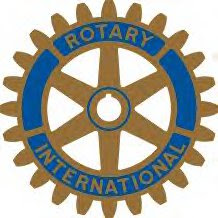 |
| Permanent Representative to the UN, Eugène-Richard Gasana(left) being congratulated Chairperson of the Peace-building Commission |
“My ambition as chair was to give a new impetus to the Peace-building Commission, building on the commendable progress achieved by my predecessors and on relevant recommendations proposed by the coacilitatoof the review of the UN peace-building architecture,” Gasana told a UN assembly.
He replaces Peter Wittig, Germany’s permanent representative at the UN.
The PBC was created in 2005 by the UN General Assembly and the Security Council.
Its mandate is to bring together relevant actors to marshal resources and to advise on and propose integrated strategies for post-conflict peace-building and recovery.
The Rwandan envoy told the gathering that after five years of existence, PBC is now entering a new phase, where it is called upon to be more efficient, more ambitious and more visible.“My vision as Chair is to ensure that the Commission achieves a real impact for populations in a larger number of post-conflict countries, helping women and men rebuild their societies.” To achieve this goal, he proposed four key priorities: effective national ownership; innovation in resource mobilization; encouraging broader engagement by more post-conflict countries; and coordinated regional and international partnerships on the ground. The PBC Organizational Committee comprises 31 Member States selected under five categories: seven from Security Council, seven from the Economic and Social Council, five top providers to UN budgets, five UN troops contributing countries and seven from the UN General Assembly.
A Peace-building Fund (PBF), financed by voluntary contributions, was established, to fund projects from countries on the agenda of the PBC as well as countries in post-conflict reconstruction.
It is currently supporting more than 100 projects in 15 countries.
Gasana noted that regional organizations play an increasing role in resolving conflicts and peace-building, and gave an example of the African Union which, he said, has established, over the past five years, a Policy Framework for Post-conflict Reconstruction and Development (PCRD). The PCRD serves as a framework for the AU Peace and Security Council (PSC) to carry out its mission of peace building and post-conflict reconstruction.
Upcoming events
16 March 2011
Speaker: James Sniffen, Program Officer United Nations Environment Programme Topic: “The Work of the United Nations Environment Programme (UNEP) including Climate Change”
13 April 2011
Speaker: Ambassador Jorge Flores Permanent Representative of Honduras to the United Nations Francis Dubois, Former UN Representative in Iraq, Palestine, Algeria, TunisiaTopic: “Protection of Christian Minorities in the Middle East”
18 May 2011
Speaker: Ms. Angela Kane Under-Secretary-General
United NationsTopic: “Present Management Challenges faced by the United Nations”
15 June 2011
Speaker: Michael Adlerstein Assistant Secretary-General United Nations Executive Director of the UN Capital Master PlanTopic: “Making the UN Headquarters a better place for delegates, staff, visitors and works of art” -
20 July 2011
Speakers: Haider Hamza, Iraqi Journalist and Benny Avni, Columnist, New York PostTopic: “The Situation in the Middle-East”
14 September 2011
Speaker: H.E. Ambassador Jean Wesley Cazeau Mission of Haiti to the United NationsTopic: “The Situation in Haiti”19
Topic: “The International Federation of Red Cross, its work in humanitarian crisis.”
16 November 2011
Speaker: H.E. Ambassador Miguel Berger Mission of Germany to the United NationsTopic: “Germany’s Priorities at the United Nations”
14 December 2011
Speaker: H.E. Ambassador W. Sobkow Mission of the Republic of Poland to the United NationsTopic: “Poland’s Priorities at the United Nations”









